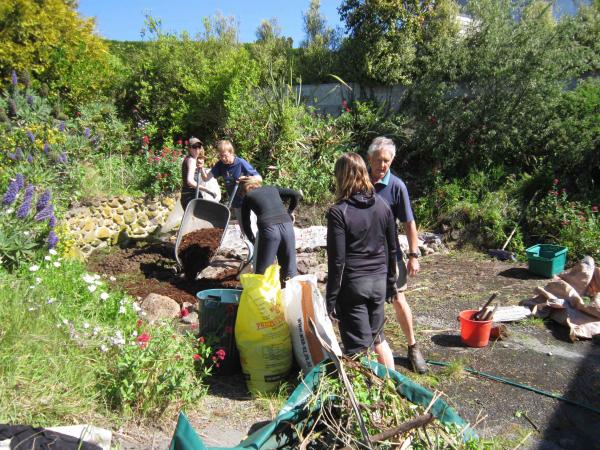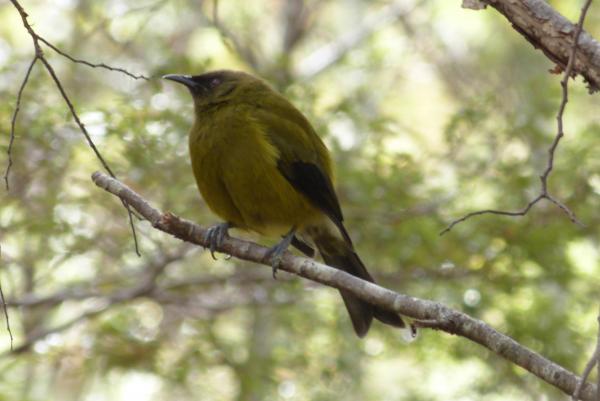Eco Village Project
Our local action on Climate and Ecological Emergency
A CLIMATE AND ECOLOGICAL EMERGENCY has been declared for Redcliffs, by the Redcliffs Residents Association (RRA). The Redcliffs/Te Raekura Eco Village Group has been formed under the umbrella of the RRA to help residents facilitate the healing of our planet and our local environment by providing information and generally promoting sustainable living. Anyone interested to take part can join the Group, or you can work privately on your own goals. This page is both a framework and a resource.
See also our Facebook page of up to date chat and information here.
To get involved or contribute ideas contact Dave Bryce on 021 363 498 or email environment@redcliffs.org.nz.
The Pledges
Here is a guide and checklist for the concerned citizen to explore the many ways you can make a real impact. Enough individuals doing this and the momentum will grow, the actions will bear fruit and the benefits will spread. The Eco Kiwi Pledges pull all this together.

Principles
The Pledges follow the principles below and generally promote sustainable living and the healing of our planet and our local environment, in particular:
- Increase the amount of native plants, reduce weeds and other invasive introduced plants, and aim for 30% of all land to be in native ecosystems.
- Encourage the increase of native birds, insects, reptiles and fish, and reduce introduced predators.
- Increase the amount of walking, running, scooting, cycling and busing, and reduce the use of fossil-fuelled vehicles.
- Increase production and consumption of local, fresh and organic/regenerative fruit and vegetables, and reduce the consumption of meat.
- Encourage sustainable use and protection of soils.
- Increase the capture of rainwater and reduce the contamination of stormwater and groundwater.
- Increase the use of natural and low emission building materials, house weather tightness, insulation, thermal mass, solar access and passive heating, and reduce the level of fossil-fuelled home heating.
- Encourage the transition to sustainable businesses and employment.
- Encourage better understanding of and care for other people and the natural environment.
- Encourage the reduction of greenhouse gases and air pollutants.
- Carefully consider the actual need for any consumer goods, and reduce the amount of waste, pollution and litter in the environment.
- Promote safety, resilience, durability and flexibility to withstand natural disasters.
- Respect all local cultures, heritage and arts, and encourage non-motorised recreation.
Pledges
Biodiversity
- Plant your own native habitat and include a lizard den, on your property, or go to community native tree planting and maintenance days. Check each week and note any new creatures and how they benefit others and people. Use inaturalist.nz.
- Keep pulling out and properly disposing of all weeds on your property.
- Keep trapping possums, hedgehogs, rats, mice and wasps on your property.
Transport
- Reduce your fossil fuelled vehicle and air travel by a further 10% this year. Buy a manual or an electric bike and choose an electric vehicle if upgrading.
- Treat yourself to two “car-less days” each week (walk, scoot, bike, bus or share ride instead).
Food, Health & Soil
- Grow more fruit and vegetables for more homemade meals, with two meat free days a week.
- Maintain your compost system and vegetable garden and keep your soil mulched, or support your community garden.
Water
- Store some of your roof water for garden watering and wash your vehicles on lawns, not hard surfaces.
- Don’t waste water: fix any leaks; turn off tap when brushing teeth; wash vegetables in a container and tip onto garden; make sure dishwashers have a full load; use gauge on jugs/kettles to boil no more water than needed.
Building
- Install natural wool insulation in ceilings, walls and under-floor, after draught-proofing your home.
Energy
- Reduce your household energy from suppliers by a further 10% this year. Choose the most energy efficient, if replacing appliances and don’t leave them on “standby” power.
- Get the most from the sun, prune trees shading house windows in winter.
Economy & Resources
- Continue to support your local shopping centre and farmer’s market weekly, and choose environmentally friendly product alternatives.
- Keep a “to do /shopping” list, and do as many things as possible each vehicle trip.
Education & Communication
- Support your local schools and take your children to local native restoration projects and learn about nature together.
- Don’t dwell on what you are losing by reducing emissions, dwell on what you are gaining.
Climate & Air
- Start the Citizen’s Climate Change Challenge. Using the “Household Calculator” at: toitu.co.nz/calculators, will help you measure your actual household CO2 emissions and the reductions you make. You will also be able to compare your emissions with the NZ average and you will find lots of tips on ways you can reduce your emissions further. The Citizens Climate Change Challenge is to reduce your emissions by 1% each month, or 10% each year so you will halve your emissions by year 2030 (as urged by the International Panel on Climate Change).
Waste/Pollution
- Put your dog poo in a plastic bag and into your “red” bin. Don’t leave the poo or the bag for someone else to deal with.
- Buy only what is necessary, durable, repairable, non-plastic/synthetic, locally made, toxin free, recycled and recyclable and leave goods packaging with suppliers. Buy in bulk, as refills, and as concentrates to reduce waste and cost.
- Share some of your chattels on mutu.co.nz, and hire rather than buy.
Resilience
- Obtain or assemble a “getaway kit” (see getthru.govt.nz).
- Pursue a new life skill (e.g. first aid, gardening, cooking, sewing, or building).
Culture & Recreation
- Spend more time on family and community activities and new living skills.
- Increase your walking, running or biking. Create circuits to follow from and to home or work (avoid using your vehicle).
The full pledges document is available for download.
Activities
The following activities and events have already been carried out or are proposed:
Biodiversity
Encourage control of pest plants, animals and insects, support Predator Free Redcliffs as part of the wider Te Manu Waiata project, encourage native plantings and wildlife, organise visits and working bees at local native habitat areas.
Transport
Tracks, paths, cycle repair stations, walking buses, vehicle sharing, parking, park & ride, public transport, slow zone through shopping area, promote reductions in air travel and other fossil-fuelled vehicle travel (identifying options such as e-bike commuting), promote park & ride areas at the city side of Ferrymead Bridge, old Redcliffs School site and Barnett Park.
Food
Encourage home gardens, berm gardens, community gardens, school gardens, reductions in meat consumption, Mt Pleasant farmers market, composting of shops’ organic waste, garden tours and home composting.
Water
Promote water harvesting and recycling, cleaner stormwater, proper disposal of stormwater and car washing guidelines.
Building
Promote sustainable building activities, designs and materials, water, energy and waste options and management, tours of examples, shopping area design improvements, Village entrance portal signs including welcome to walkers, cyclists and scooters.
Energy
Promote reductions in household energy use and conversion from fossil fuels to renewable energy.
Economy
Prepare a directory of local businesses including home-based ones, promote local businesses and those making sustainable changes, support centralised premises, promote sustainable products.
Education & Communication
Provide information to residents with workshops, public meetings and on our website, facebook, email list, Bay Harbour News and newsletters, support local schools, set up street co-ordinators, promote junk-mail free Village, investigate bumper & bike stickers, seek & respond to resident feedback via a “living doc” on RRA website, seek youth representation on RRA as community service and further promote adoption of a “cause” by every student, establish an information centre, network with other groups including Ecan, CCC, Community Board, Water Zone , School, Estuary Trust, Ngāi Tahu, Timebank, neighbouring communities, promote Eco-Village concept to other communities.
Soils
Promote soil care and erosion avoidance.
Waste & pollution
Promote reduction of environmental waste and litter (including dog poo), support clean-up events, promote reductions in packaging and consumption, discourage use of synthetic fertilisers and pesticides.
Resilience
Promote local response and resilience plans.
Culture & recreation
Prepare a directory of local artists, promote greater understanding of local cultures and heritage, promote social and recreational events and fundraising, investigate a youth “hang-out” space, investigate a Village square/meeting place/performance stage/plaza, investigate provision of art & craft studios and exhibitions, promote the Coastal Pathway and walking/cycling/scooting events, maintain a directory of recreational clubs, support an annual promotion of clubs, prepare a map of local walks and promote Estuary events.
Summary
The Te Rae Kura / Redcliffs Residents Association promotes the above Principles and Pledges in their activities and in holding other organisations and public bodies to account for their policies and actions. Every month we focus on a different issue and organise and publicise relevant information and events such as public talks, workshops, documentaries, book reviews, working bees, open homes and gardens, which promote the above Principles and assist residents to meet their Pledges.
We appreciate there are numerous other measures people can take to reduce their environmental impacts and we will produce a further Pledge list each year.
Come and work with us or contribute your ideas.
Publications
Here is a paper on water use.
To get involved...
To get involved with other committed residents or contribute ideas, contact Dave Bryce on 021 363 498 or email environment@redcliffs.org.nz.
The Group has a Facebook page here.
And, finally, here is a local bellbird appreciating the regenerating native bush.



